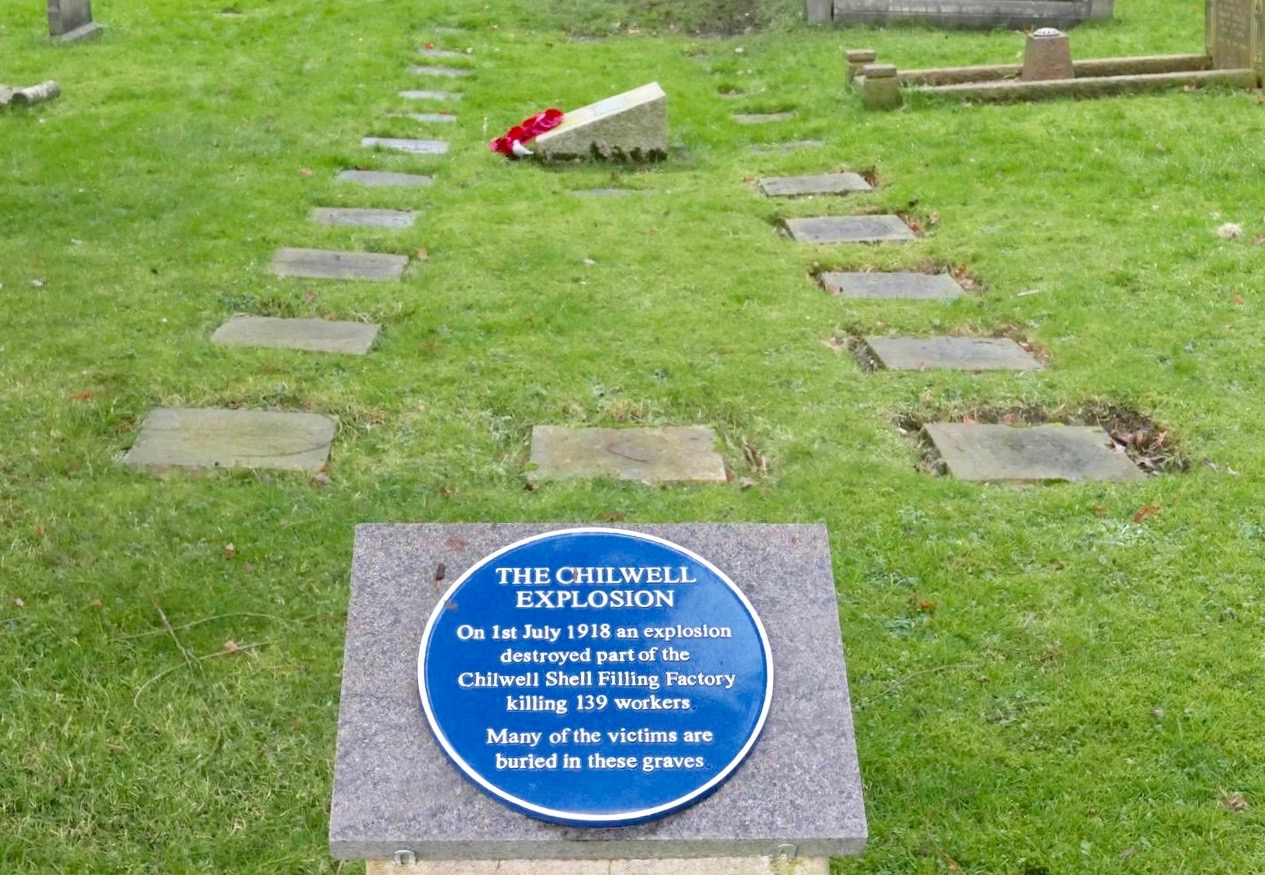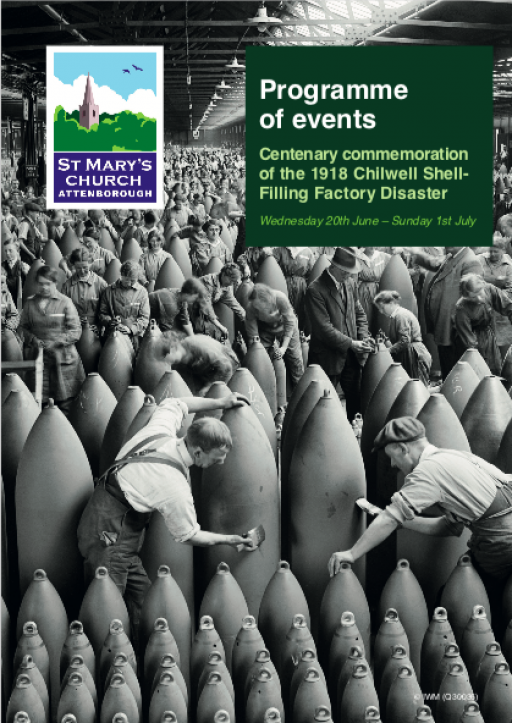The centenary of one of the worst First World War disasters on Britain’s home front is to be commemorated with a programme of exhibitions, talks and other events leading up to a special remembrance service.
More than 130 workers – 25 of them women – were killed in the explosion at the Chilwell munitions factory, near Nottingham, on 1 July 1918. The majority were never identified, their remains laid to rest in a mass grave at St Mary’s Church in the village of Attenborough.
On the 100th anniversary, St Mary’s will hold a special service of remembrance. Two minutes silence will be observed at 7.10pm on Sunday July 1, marking the moment when eight tons of TNT detonated with catastrophic consequences a century ago.
In the run-up to the Centenary, the church launched an appeal for funds to refurbish the grave site with a raised gravel bed and a new memorial cross.
Deputy Churchwarden Gill Linton-Smith, said: “We need to honour the memory of the brave men and women who worked behind the front lines to support the war effort at the factory.
“This is a site of historic significance. By launching this fund-raising project, we’re hoping not only to generate the money we need for the new memorial but to give others a special chance to commemorate their own loved ones – whether that’s ancestors lost in the First World War or friends and family who have died more recently.”
Dedications and tributes from sponsors will be collected in a special Book of Remembrance at the church.
 The grave site at St Mary’s Church, prior to refurbishment (Photo: Centenary News)
The grave site at St Mary’s Church, prior to refurbishment (Photo: Centenary News)
The National Shell-Filling Factory at Chilwell, now the site of an army barracks, was one of Britain’s most productive Great War munitions plants, built in response to the ‘shell crisis’ of 1915. It filled more than half of the shells fired on the Western Front.
Aside from the risk of explosions, munitions workers, many of them women recruited to replace men who’d gone to the front, were exposed to other occupational hazards.
The Chilwell women became known as ‘Canary Girls’ – their skin turned yellow by handling toxic chemicals used in the manufacture of explosives.
The force of the blast on 1 July 1918 was so great that only 32 of the 134 dead could be identified. Another 250 people were injured – of whom five died later, bringing the total of those killed to 139.
The cause is throught to have been accidental, although secrecy pervaded reporting of the tragedy and subsequent inquiry.
Despite the devastation, the surviving workers reported for work the following day. The factory was rebuilt, and full production rapidly resumed.
In a message of condolence, the Munitions Minister, Winston Churchill, wrote: “The courage and spirit shown by all concerned, both men and women, command our admiration, and the decision to which you have all come to carry on without a break is worthy of the spirit which animates our soldiers in the field.”
The Chilwell disaster commemorations run from 20 June-1 July 2018. See the centenary events programme for details. The deadline for booking ticketed events is June 16.
Also in Centenary News:
Halifax explosion in Canada kills 2,000 people, December 1917.
More than 70 die in Silvertown explosion, January 1917.
35 women killed at Barnbow Filling Factory, in Leeds, December 1916.
Source: St Mary’s Church, Attenborough
Images courtesy of St Mary’s Church/Imperial War Museums; Centenary News (grave site)
Posted by: CN Editorial Team
